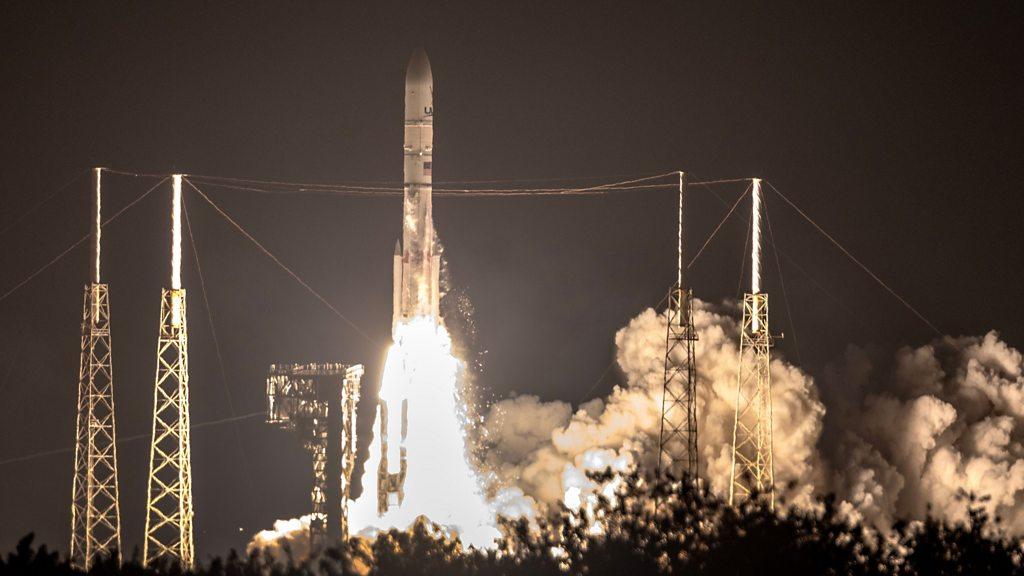Harwell scientists design Moon 'water-sniffing' tool
- Published
Watch: Vulcan rocket sends Moon mission on its way
"Water-sniffing" scientific equipment that could determine future astronaut missions to the Moon has launched in a US spacecraft.
The instrument, part developed by RAL Space in Harwell, Oxfordshire, will analyse the atmosphere near the lunar surface and look for drinking water.
It is onboard the Vulcan rocket which launched from Cape Canaveral in Florida at 07:18 GMT (02:18 EST).
The instrument could prove vital for sustainable human space exploration.

Not since Apollo 17 in 1972 has the US soft-landed a spacecraft on the lunar surface
Peregrine Mission One is being carried out by the US space company Astrobotic on behalf of NASA, and is carrying five scientific instruments to help prepare for human missions to the Moon later this decade.
Astrobotic's robotic lander, Peregrine, aims to become the first American mission in 51 years to complete a soft touch-down, and the first ever by a private company.
Peregrine is part of a stampede of spacecraft that will attempt to put themselves on the lunar surface in 2024 - possibly as many as eight different projects, including from Japan and China.
Peregrine Ion Trap Mass Spectrometer (PITMS) has been developed by RAL Space in partnership with the Open University in Milton Keyes and NASA.
RAL Space also designed the circuit boards to power the equipment.
Production and software group leader Chris Howe said the project had been 22 months in the making and described PITMS as "a nose that is going to sniff the lunar atmosphere".

RAL Space production and software group leader Chris Howe said the project had been 22 months in the making

RAL Space designed the circuit boards to power the equipment
"I'm very, very pleased because it's the first launch of this particular rocket type," Mr Howe added.
"So we are saying if the instrument switches on OK when it's in space... then we will be able to say that is a success.
"The technology from PITMS will now help underpin future missions, such as the Rosalind Franklin Rover, so whilst PITMS will only operate for one lunar day on the moon, its legacy will be felt for years."
Dr Simeon Barber, Luna research scientist at the Open University, added that if useful space resources could be found and purified, they could then be used "as drinking water for astronauts and that should make for cheaper and faster, more sustainable missions".
In the future, the Vulcan rocket will be launching many of America's national security missions.

Follow BBC South on Facebook, external, X, external, or Instagram, external. Send your story ideas to south.newsonline@bbc.co.uk.
Related topics
- Published8 January 2024
- Published8 January 2024
